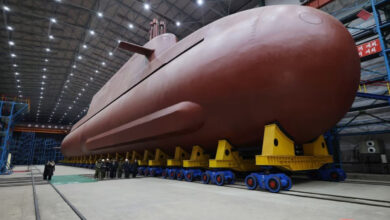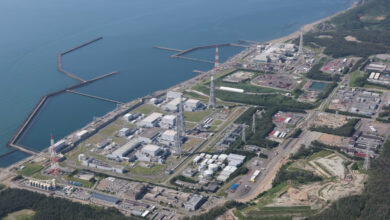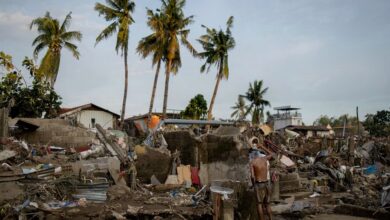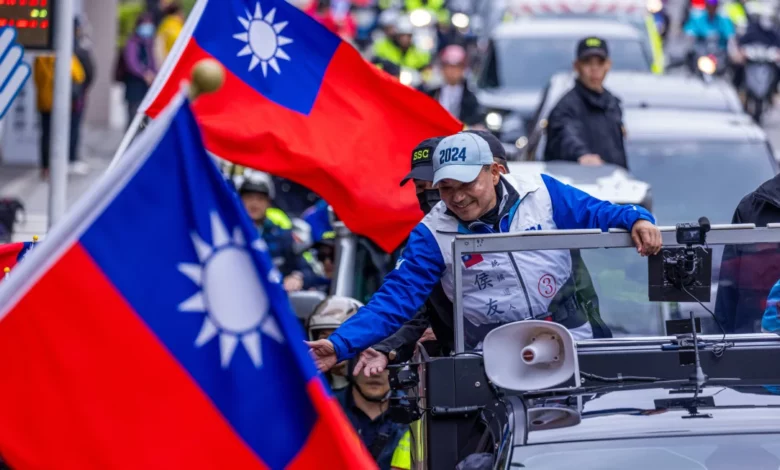
A presidential election in 2024 with profound implications for the wider world certainly sounds familiar. But this one is happening a lot sooner than you might think.
Taiwan, a small and vibrant Asian democracy on the doorstep of a much larger authoritarian neighbor, holds presidential and parliamentary elections on Saturday and the results will reverberate far beyond its borders.
The outcome is being closely watched by China’s Communist leaders who have long claimed Taiwan as part of their territory despite having never controlled it.
The vast majority of people in Taiwan don’t want to be ruled by China, whose strongman leader Xi Jinping has tightened his grip at home as the country becomes more aggressive towards its neighbors.
China is openly opposed to Taiwan’s current ruling party and has framed the election as a choice between “war and peace, prosperity and decline.” Xi delivered a fresh warning to Taiwan in a New Year’s Eve speech, declaring: “The reunification of the motherland is a historical inevitability.”
Taiwan also remains the biggest source of tension between China and the US, the island’s main international backer and arms supplier, and relations between the world’s two superpowers have been rocky for years.
How China responds to the choices made by Taiwan’s voters this weekend will test whether Beijing and Washington can manage tensions, or move toward further confrontation – and even conflict.
Here’s what you need to know about this crucial election:
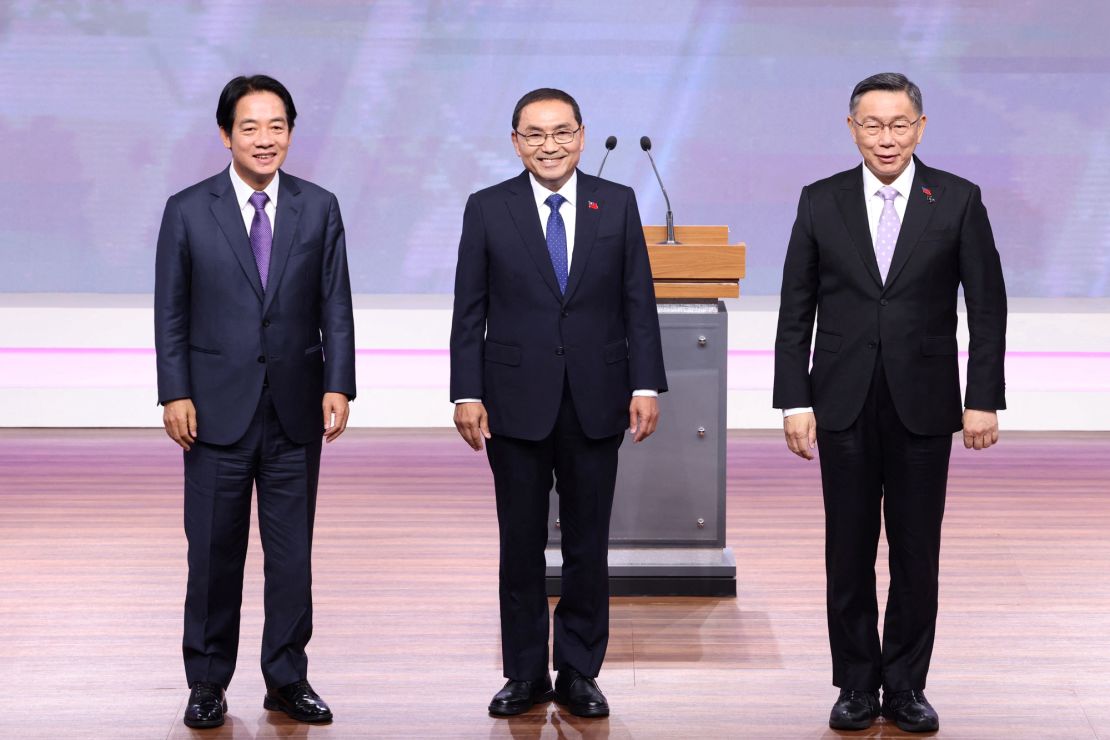
Who are the candidates?
Three men will be vying to succeed President Tsai Ing-wen, who has held office for eight years and cannot run again due to term limits.
The frontrunner in the tight race is Lai Ching-te, the current vice president from the ruling Democratic Progressive Party (DPP), which champions Taiwan’s de-facto sovereignty and separate identity from China.
A doctor-turned-politician, Lai has previously described himself as “a practical worker for Taiwan independence” – a claim that enraged Beijing and worried Washington. But he has moderated his stance on the campaign trail, pledging, like Tsai, to keep the “status quo” and offering to talk with Beijing “under principles of equality and dignity.” Beijing has rebuffed his offers, calling him a “war maker” and “destroyer of cross-strait peace.”
Lai’s running mate, Hsiao Bi-khim, is a well-known figure in Washington where she recently served as Taiwan’s envoy. China has sanctioned Hsiao twice for being a “stubborn secessionist.”
Lai’s biggest challenger is Hou Yu-ih, a former police officer and popular mayor of New Taipei City from the Kuomintang (KMT), Taiwan’s main opposition party which traditionally favors closer ties with China. Hou blames the DPP for provoking China and advocates “peaceful relations” with its neighbor by keeping dialogue open and boosting economic and social ties. He also vows to strengthen Taiwan’s defense.
The third contender, Ko Wen-je, hails from the Taiwan People’s Party (TPP), which he founded only in 2019. The charismatic former mayor of Taipei paints himself as a political outsider. His focus on bread-and-butter issues has been especially well received by younger voters, many of whom have grown frustrated with Taiwan’s traditional political duopoly as well as stagnant wages and unaffordable homes.
On relations with China, Ko has touted a “middle path,” accusing the DPP of being too hostile and criticizing the KMT for being too deferential.
No political party in Taiwan has ever been elected to a third term in power. If Lai wins the DPP another term, it would be unprecedented in the island’s 27-year democratic history – and a potent symbol of the failure of China’s bellicose approach to Taiwan.
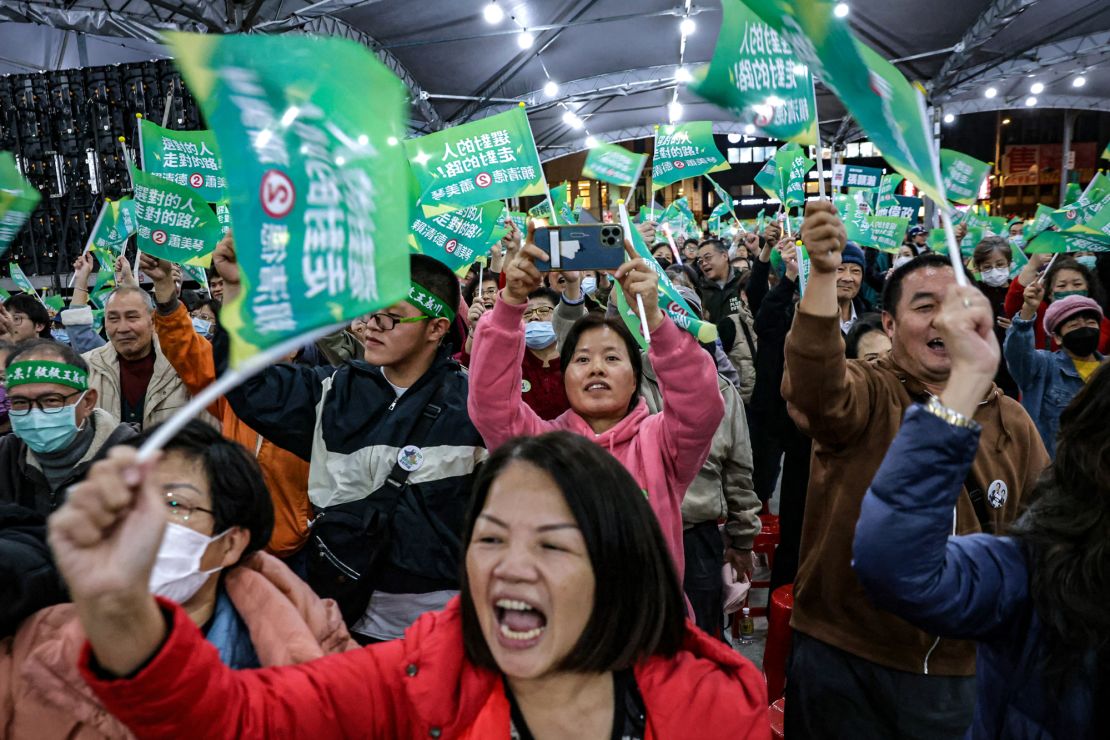
How has China reacted?
China has long used a mixture of carrot and stick as it seeks to persuade Taiwan to submit to its “reunification” plan. But under Xi it has become mostly stick.
Since Tsai’s first election eight years ago, Beijing has cut off most communications with Taipei, poached its dwindling number of diplomatic allies, rolled back cross-strait exchanges, and significantly ramped up military pressure.
These assertive measures have sent cross-strait relations to their lowest in decades and pushed Taiwan further away. Less than 3% of people in Taiwan now identify primarily as Chinese, and less than 10% support an immediate or eventual unification.
Taiwan has also deepened its relations with Western nations over the last eight years, including the United States, alarming Beijing.
Officials in China, a one-party state, have urged the people of Taiwan to make the “correct choice” – widely seen as a euphemism for not voting DPP.
Taiwan officials have accused China of attempts to interfere in its elections, including disinformation campaigns on social media and economic coercion.
Ahead of the election, China has kept military pressure on Taiwan, sending fighter jets, drones and warships close to its skies and waters. Beijing has also flown balloons over the island, in what Taiwan’s defense ministry has called part of a “psychological warfare to affect the morale of our people.”
While few experts expect an imminent invasion from the People’s Liberation Army, Beijing has ample ways to demonstrate displeasure, from a show of force through military exercises to a further suspension of trade links with Taiwan or even a blockade.
How far these actions might go – and how the US and its allies react – will be closely watched by a world already nervous about conflicts raging in Europe and the Middle East.
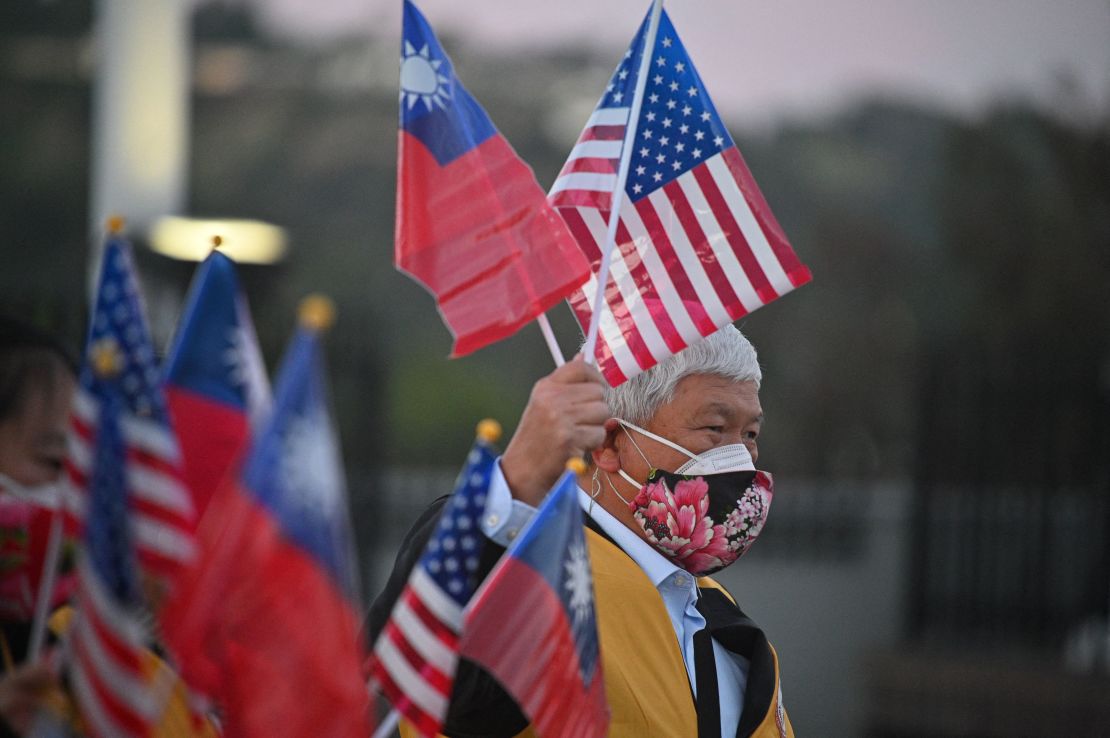
What is the US relationship with Taiwan?
Washington cut formal ties with Taiwan in 1979 after switching diplomatic recognition from Taipei to Beijing.
Since then the US has maintained close unofficial ties with Taiwan and is bound by law to provide the island with means to defend itself. But it has long remained deliberately vague on whether it will come to Taiwan’s defense in case of a Chinese attack.
Under President Joe Biden – and his predecessor Donald Trump – the US has ramped up support and arms sales to Taiwan. Biden also said on multiple occasions that the US would defend Taiwan if China invaded, sparking questions over whether the US is moving away from its long-standing policy of “strategic ambiguity.”
That has irked Beijing, which warns the Taiwan issue is “the first red line that must not be crossed in China-US relations.”
Washington maintains it does not favor any presidential candidate in Taiwan and Biden said he had explicitly warned Xi against interfering in the election during their summit in San Francisco in November.
Taiwan’s election comes as the US is trying to stabilize fraught relations with China and prevent competition from veering into conflict.
Meanwhile the US will hold its own presidential election in November, a vote that will be closely watched by Taiwan’s new leaders and the island’s 24 million people.

